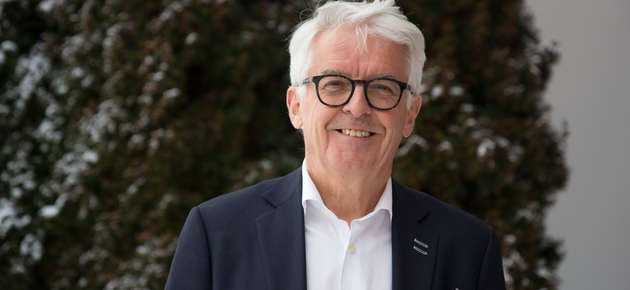Dissertation: Network contracting companies in profitability crisis – the purchasing power of ...


“The market for companies providing network contracting and maintenance services has grown due to, for example, investments in underground cabling by electricity grid companies while at the same time, almost all of the service companies included in the study have seen a sharp fall in operational profitability and growth,” explains Kontu who will defend his doctoral thesis at the University of Vaasa, Finland.
Network contracting developed into a separate business
In just over 20 years, a new, separate industrial service business has developed in the Finnish energy sector as a result of European Union regulations and market opening. Energy authorities have played an important role in the transformation. The total turnover of these service companies has risen to a few billion, and they employ more than 10,000 people.
In the early stages of this business transformation, service companies experienced strong growth due to the outsourcing of network companies' business. Later on, some service companies expanded their operations abroad, while foreign service companies have gained entry into Finland. Dozens of business consolidations have also taken place.
Additionally, service business ownership has become more diversified during the transformation phase. In addition to energy companies, service businesses are now owned by private equity investors, senior management and shareholders through stock exchange. A situation of market-based and almost open competition has been created for the network construction industry.
Monopolistic customers satisfied – contractors in difficulties
In recent years, the growth of individual service companies has ceased even though the studied service market has grown significantly due to weatherproof grid and optical fibre cable investments. New service providers have gained market share in the industry.
At the same time, the operational profitability of almost all of the service companies included in the study has plunged. On the other hand, the investment efficiency of monopolistic electricity grid companies has improved significantly. Network companies are very satisfied with the current operating model where services are mostly outsourced.
Lack of investment in service development and customer knowledge
The study revealed that service companies' investment in the development of services and their own products is absolutely negligible, and service differentiation does not take place. The studied service companies are in pure price competition, which means that cost efficiency is crucial for achieving profitability.
“Service companies know their customers on a superficial level – value chains are not known. The reverse was also true: customers are unfamiliar with the service company's processes. Service companies do not systematically analyse or maintain their own critical competences. As the entry threshold in this industry is low, the number of competitors has increased and talent is moving easily from firm to firm,” Kontu explains.
A sustainable competitive advantage business model – Smart Service
According to Kontu, service companies should not point a finger at the customer for poor profitability. Instead, they should find new ways of doing things.
In his doctoral thesis, Kontu developed a new sustainable competitive advantage business model for service companies – the Smart Service. The model is based on research-based theoretical, conceptual framework and tools as well as on the empirical results of the study. These comprise described and defined sub-processes: Profitability/Growth, Market Analysis/Customer Proximity, Critical Competence/Resources and Service Development.
“Companies within the industry need new business models to improve sustainable competitive advantage and profitability,” says Kontu.
Kontu's doctoral thesis examined electrical and telecom network service companies in Finland and their network company customers – a total of 40 companies representing approximately 70% of the market. The study was conducted through online surveys addressed to and interviews with target companies and industry organisations and through collecting companies' financial and operational data from public sources.
Public defence
The public examination of M.Sc. (Tech.) Aappo Kontu’s doctoral dissertation ”Sustainable Competitive Advantage in the Industrial Service Business” will be held on Thursday 12 December 2019 at 12 o’clock in auditorium Nissi. The field of dissertation is Industrial Management. The defence will be held in Finnish.
Docent Marja Toivonen (Aalto yliopisto) and Professor Pertti Järventausta (Tampere University) will act as opponents and professor Jussi Kantola as custos.
Further information
Aappo Kontu, tel +358 44 425 2210 e-mail: aappo.kontu (at) gmail.com
Kontu, Aappo (2019) Sustainable Competitive Advantage in the Industrial Service Business. Acta Wasaensia 436. Doctoral dissertation. Väitöskirja. Vaasan yliopisto. University of Vaasa.
Publication pdf: http://urn.fi/URN:ISBN:978-952-476-894-8